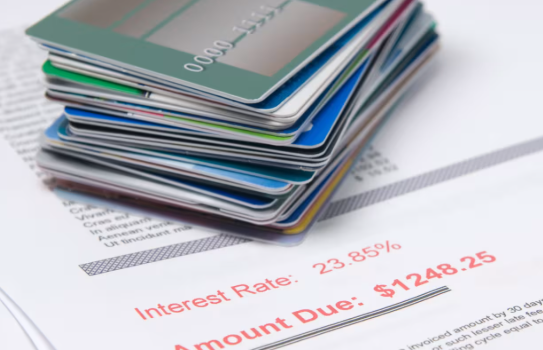
Congratulations! You’ve made it to the point where your credit card debt is nearly gone. After months or even years of dedication, it’s a huge accomplishment. But as the feeling of relief washes over you, it’s important to think about how you’ll maintain your debt-free status moving forward. With your finances now freed from the weight of monthly payments, it’s crucial to set yourself up for long-term financial health. Here are six key steps to help you stay debt-free and secure your financial future.
1. Plan Ahead for What’s Next
As you approach the final stages of paying off your debt, take a step back and begin planning for what comes next. Six to twelve months before you’re debt-free, start considering your financial goals. Ask yourself important questions like:
- What are my personal and financial goals for the future?
- What have I wanted to do but couldn’t afford while paying off debt?
- What lifestyle do I want to create for myself and my family?
- What are my priorities for the next year?
This is the perfect time to think about your future, whether it’s saving for a down payment, putting more toward your retirement savings, or planning for a family vacation. This preparation will set the tone for your financial planning as you transition from debt repayment to wealth building.
2. Keep the Money Out of Reach to Avoid Impulsive Spending
Now that you’re no longer tied down by debt payments, it can be tempting to spend that extra cash. However, instead of letting it slip away on unplanned expenses, put it into a separate savings account. This will keep it out of sight and reduce the temptation to indulge in old spending habits. Set up automated transfers to your savings so you can save consistently, even if you’re unsure what to do with the money just yet.
3. Stick to a Budget
Even though you’ve paid off your debts, it’s important to maintain the budgeting habits that helped you get here. Don’t abandon the system that works. Reassess your budget now that you have more disposable income. If you feel like treating yourself to an occasional dinner out or a coffee every week, it’s okay, but make sure these changes don’t derail your financial progress. Gradually increase your spending in areas that matter to you, but always ensure that your overall budget is balanced. Keep tracking your expenses, and continue saving. Maintaining a budget is essential for staying debt-free.
4. Build Up an Emergency Fund
One of the first things you should do now that you’re free from credit card debt is build a solid emergency fund. During your debt repayment journey, you might not have had the luxury of saving regularly. But now, with extra funds at your disposal, start putting money aside for emergencies. Aim to save enough to cover at least six months of living expenses, which will provide a financial cushion in case of unexpected events like job loss, medical emergencies, or home repairs.
5. Set New Financial Goals
With the weight of debt behind you, it’s time to set new goals for your money. Think about both short-term and long-term objectives. Short-term goals could include saving for a vacation, upgrading your tech, or adding funds to your tax-free savings account (TFSA). Long-term goals might involve saving for a home down payment, purchasing a new car, or growing your retirement fund. These goals will give your newfound financial freedom purpose and direction. Set up automated contributions to your savings accounts to make sure you’re moving toward your goals consistently.
6. Avoid Taking on New Debt
After paying off your credit cards, it’s tempting to reopen them or apply for new credit. However, if your spending habits got you into trouble in the past, it’s essential to tread carefully. If you decide to rebuild your credit, start with one small credit card with a manageable limit. Always pay it off in full each month to avoid interest charges and keep your credit score healthy. A secured credit card is another option if you’re concerned about temptation. The key is to use credit sparingly and responsibly to prevent falling back into debt.
Conclusion
Becoming debt-free is a major accomplishment, but it’s only the beginning of a new financial journey. By following these six steps, you can ensure that you don’t fall back into old habits and continue to build a strong financial foundation for yourself and your family. Stay disciplined, prioritize your savings, and always think ahead. Your future self will thank you for it.









